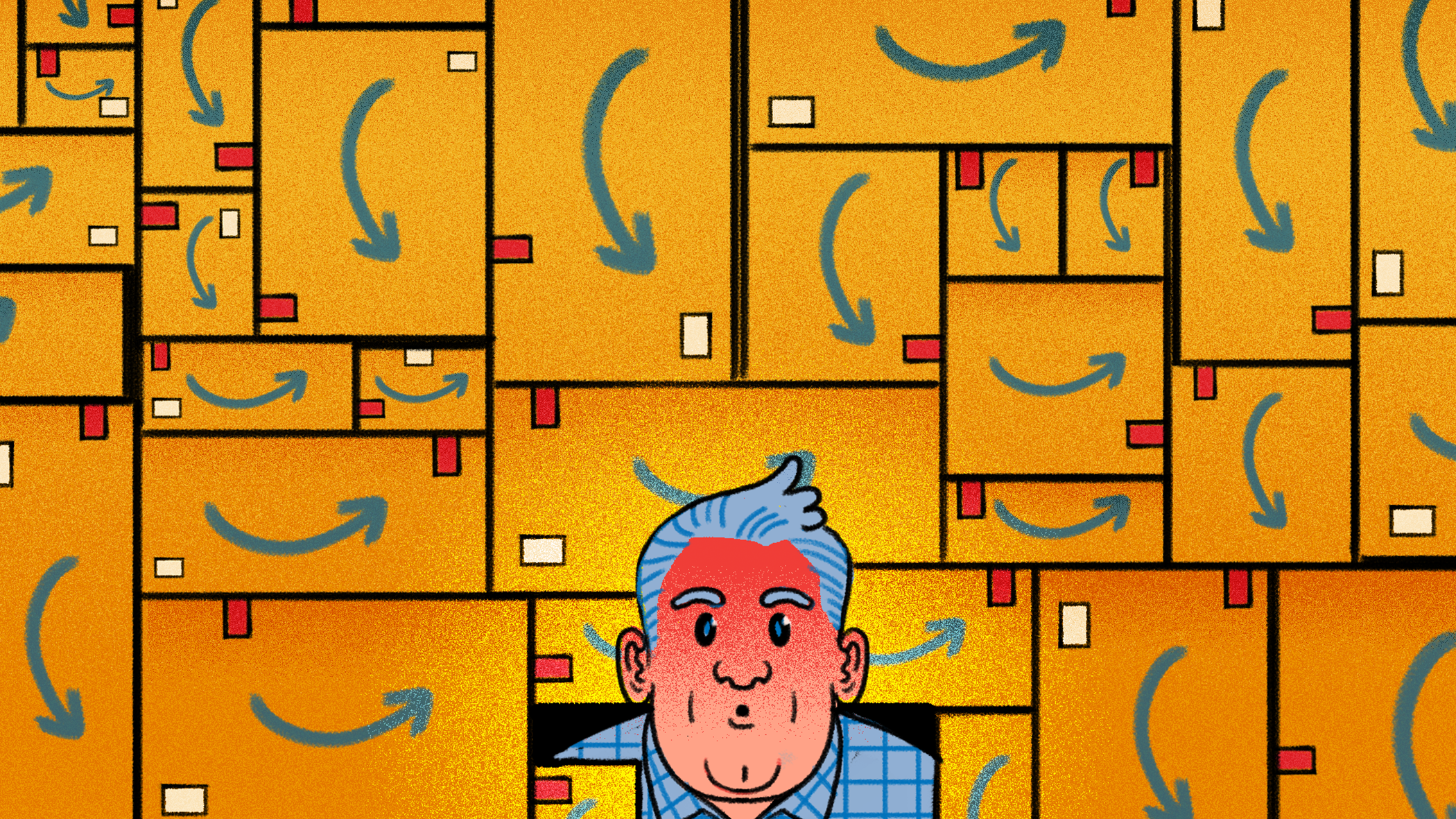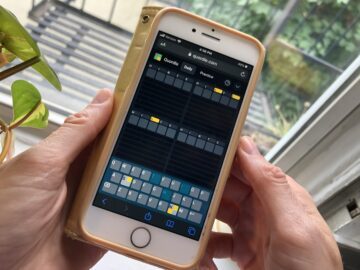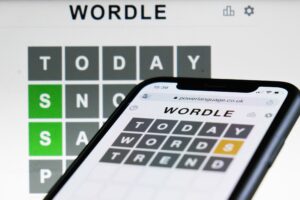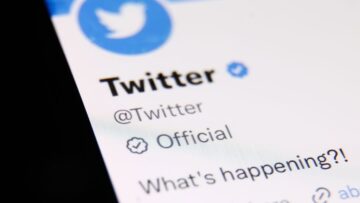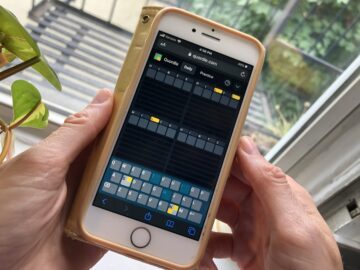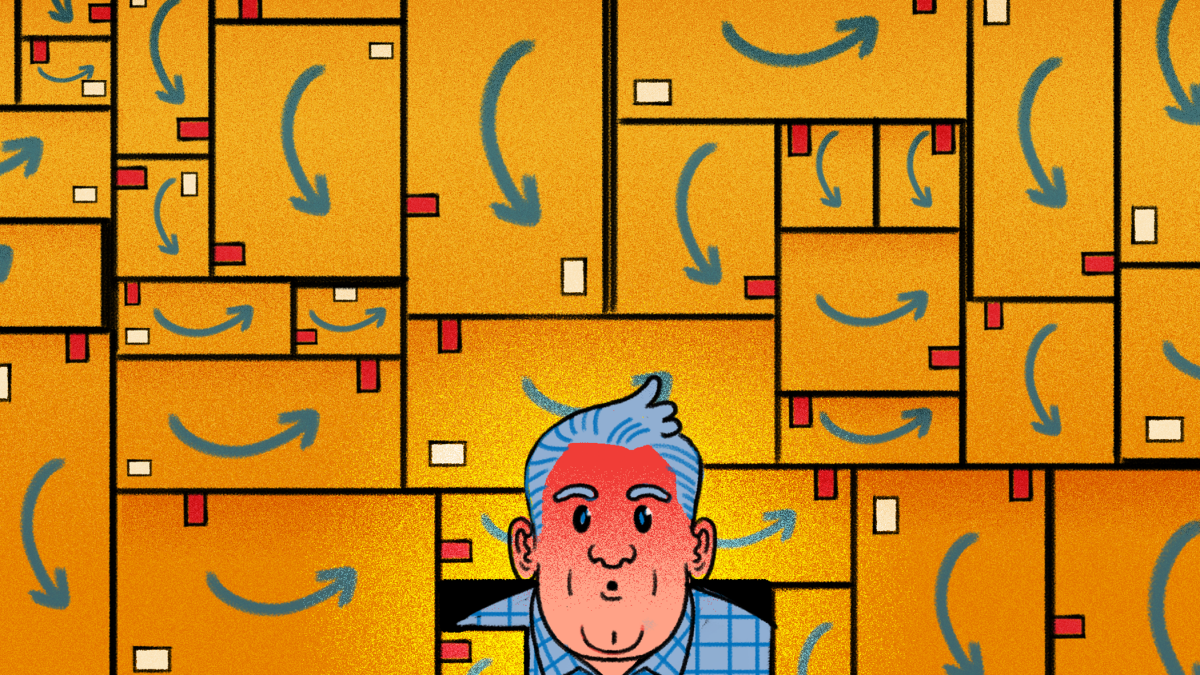
Amazon‘s exclusive Prime Day sale is back for its seventh year in 2022, but record-high inflation rates have made it harder than ever to figure out which deals are actually worth adding to your cart. Below, we’ve rounded up some must-know Prime Day info that you can use to make smart shopping decisions and stretch your dollar against soaring prices.
What is Prime Day?
Prime Day is an annual sitewide sale that Amazon puts on for its Prime members. First held in 2015 in honor of Amazon’s 20th anniversary (with mixed success), it was originally plugged as a “one-day-only event filled with more deals than Black Friday, exclusively for Prime members around the globe.” In the years since, it’s morphed into a 48-hour affair that’s preceded by a couple weeks of teaser deals. “Prime Day” is a misnomer at this point.
When is Prime Day in 2022?
After teasing the announcement in its first-quarter earnings report, Amazon confirmed in a press release(opens in a new tab) that Prime Day will begin on Tuesday, July 12 at 3 a.m. ET and run through Wednesday, July 13 in 2022. (Can’t wait ’til then? Early Prime Day deals and exclusive new offers began rolling out on Tuesday, June 21 — more on those in a minute.) This is a return to its usual mid-July slot after two years of adjustments: Amazon bumped it back to October in 2020 because of the pandemic, then moved it up to June because of the Olympics in 2021.
Rumor has it that Amazon is toying with the idea of hosting a second Prime Day-style sale later this fall, which would be a first, but the company has yet to confirm any details.
What’s new or different for Prime Day this year?
Amazon’s language surrounding Prime Day 2022 is noticeably more restrained compared to previous years (which tracks given the current state of the economy). For example, it bragged about offering “over 2 million deals across every category” in 2021 and “more than one million deals on everything they [shoppers] need and love” in 2020; this year, there’s no emphasis on a huge amount of deals — just that we’re getting “Amazon’s lowest prices ever on select products” and a wider selection of items from third-party sellers. TL;DR: There will still be a ton of stuff on sale, but it probably won’t be the big blowout bonanza we’re all used to.
On a more positive note, Amazon has rolled out several new ways shoppers can earn free money for Prime Day 2022. You can score over $100 in credits by participating in Prime Stampcard(opens in a new tab), its new virtual punchcard program; financing your Prime Day order with Affirm(opens in a new tab); trying Amazon Photos; buying at least $50 in gift cards(opens in a new tab) (or reloading an existing balance); spending at least $75 on Procter & Gamble products(opens in a new tab); and even just grabbing a movie ticket to Lightyear(opens in a new tab) or Elvis(opens in a new tab).
What will be the best Prime Day deals?
Prime Day has always been Amazon’s favorite excuse to discount its own devices and services, and this year is par for the course. The early deals that began June 21 feature savings of up to 55% on gadgets like the new Amazon Glow(opens in a new tab), the Halo View(opens in a new tab) fitness tracker, Ring Alarm(opens in a new tab) home security kits, Luna cloud gaming bundles(opens in a new tab), and a slew of Fire TVs from several different brands. (That includes a new 75-inch Toshiba 4K smart TV(opens in a new tab), last year’s Amazon Fire TV 4-Series(opens in a new tab) roster, and a kitchen countertop-friendly 24-inch Insignia smart Fire TV(opens in a new tab) that comes in at only $90.)
Prime members who haven’t tried Amazon Music Unlimited yet can now snag a free four-month trial through July 13 (normally $8.99/month), which gets upped to six months with the purchase of select Amazon Echo devices. If you’re more of a podcast or audiobook person, three free months of Audible Premium Plus are also grabs for members through July 31.
Need something new to play? Prime Gaming(opens in a new tab) members can download 25 indie PC games for free in the weeks leading up to Prime Day, and AAA titles like Mass Effect: Legendary Edition, Need for Speed Heat, and Star Wars: Republic Commando will join the ranks on July 12. Enjoy your gaming.
Beyond that, our other usual Prime Day suspects include 4K OLED TVs, robot vacuums, headphones, earbuds, and basically every Apple product under the sun. (We may not see any new record-low prices, but Amazon’s been going ham on iMac, MacBook, iPad, AirPod, and Apple Watch deals ever since the Peek Performance event in March, so our expectations are pretty high.) A barrage of discounts on air fryers is probably a given, too, now that they’ve eclipsed Instant Pots as everyone’s kitchen gadget of choice. If it helps, a post on Amazon’s blog name-dropped brands like Beats(opens in a new tab), Bose(opens in a new tab), iRobot(opens in a new tab), Sony(opens in a new tab), and SharkNinja, which makes Shark vacuums(opens in a new tab) and Ninja kitchen appliances(opens in a new tab).
The dawn of Peloton’s flop era should shake things up on the home fitness side of things. Competitive deals on exercise bike alternatives from brands like NordicTrack and Echelon are definitely in the Prime Day forecast. We’ll also be on the lookout for sales on treadmills, ellipticals, rowing machines, smart mirrors, and adjustable dumbbells, just in case you never got around to renewing your Equinox membership after the lockdowns.
Deals on pet tech, beds, and toys will probably pop off more than usual as everyone continues to splurge on their pandemic puppies and kittens — the Amazon Pet Day sale in early May was probably a sampling of what’s to come. The same goes for discounts on luggage and other vacation essentials; finding ways to offset high prices on gas, airfare, and hotels will be key as we enter another summer of “revenge travel.”
Relatedly, deals on camping gear sit near the top of our Prime Day wish list: It would be nice for outdoorsy folks to have a chance to upgrade their tents, sleeping bags, hammocks, stoves, and other equipment before the usual end-of-season clearance sales in August and September.
Who else is competing with Prime Day?
Target was the first to enter the anti-Prime Day foray, announcing dates for its biggest-ever Target Deal Days event mere hours after Amazon’s reveal went live. The 72-hour sale will run from July 11 to 13 on Target.com and the Target app across every category, with no membership required for access. (A press release(opens in a new tab) previewed discounts of up to $70 on Apple products, up to 50% off select tech and headphones, up to 40% off kitchen appliances, and up to 35% off floor care products.) When you factor this in with the department store’s ongoing efforts to wipe its inventory before fall, it’s looking like Target will be Amazon’s stiffest Prime Day competition this year.
Meanwhile, Walmart already hosted its own version of Prime Day this year called Walmart+ Weekend. The sitewide sale from June 2 to 5 featured juicy offers that were available exclusively to Walmart+(opens in a new tab) members, including $200 off the 2020 iPad Airs, a $49 Keurig, and several Xbox Series S bundles. No word yet on whether the big box store is reviving The Big Save, a separate event that’s exactly coincided with Prime Day in years past, but it probably won’t be able to resist another opportunity to take a slice of Amazon’s pie.
Other retailers like Best Buy, Kohl’s, Bed Bath & Beyond, and even eBay have also hosted anti-Prime Day in years past, and we’ll almost certainly see a repeat of those in 2022.
Prime Day versus Black Friday: When’s the best time to shop?
Black Friday has been (and likely always will be) the biggest shopping event of the year for several reasons: One, because you’ve got lots of different retailers participating both in stores and online. Two, because nobody’s sales are paywalled behind a membership fee. And three, because it always falls right before everyone’s holiday gift exchanges. It’s basically open season for deal-hunting.
Many retailers have also taken it upon themselves to expand Black Friday into a monthlong event in recent years, releasing teaser deals weeks ahead of time and extending them through Cyber Monday in an ongoing quest to one-up each other. (“Black Friday” is probably a misnomer, too.) Walmart set the stage for an especially competitive Black Friday last year when it released the first of its deals in mid-October, and we wouldn’t be surprised if it made a habit of it going forward.
That being said, it’s worth checking out Amazon’s Prime Day deals if you have a lot to buy for summer or the back-to-school season, or if you just need to stock up on some essentials.
We’d also make a strong case for anyone who feels overwhelmed by the chaos of Black Friday: Prime Day tends to feel more laid-back since Amazon is the self-appointed star of the show. You don’t need to be comparing prices across retailers and parsing through different ad scans. You definitely don’t need to get off the couch to do any in-person shopping. And aside from a few stragglers, you can pretty much guarantee that its offers will strictly adhere to the two-day time slot.
The only truly annoying thing about shopping on Prime Day is trying to stay on top of its time-sensitive Lightning Deals(opens in a new tab) (or flash sales), which tend to sell out fast, but Amazon gives you a couple different ways of figuring out when they’ll drop.
Prime Day shopping tips and tricks
Aside from aggressively lurking on Amazon’s dedicated Prime Day page(opens in a new tab) (and reading our coverage of standout discounts), there are several ways to ensure you don’t miss out on a worthwhile deal:
-
Organize your Wish List. Amazon’s virtual shopping list feature puts all of your must-haves in one convenient spot so you’re not constantly flipping between links and tabs; you can even rank items based on how much you want them. Once Prime Day rolls around, you’ll be able to see which ones are on sale at a glance. (Read Mashable’s guide to “wishlisting” for additional intel.)
-
Download the Amazon mobile app. You can activate push notifications(opens in a new tab) to get alerted whenever there’s a deal on an item on your Wish List or a product related to your recent searches/views.
-
Sort Amazon’s Deals page(opens in a new tab) by “Upcoming(opens in a new tab)” (found at the very top of the left-hand column). That’ll pull up a grid of deals that are happening in the near future, with exact start times listed for each. Mark your calendar accordingly.
-
Take advantage of Alexa’s new advanced deal alerts feature. This one’s really cool: Amazon’s virtual assistant can now notify you of a sale on an item in your Wish List, Shopping Cart, or “Saved for Later” queue up to 24 hours before it goes live. Enable the feature on a newer generation Echo smart speaker, and you’ll see its light ring turn yellow (or a pop-up alert) whenever an item you’ve saved has a discount in the pipeline. You can then ask Alexa for more information about the deal, have her set a reminder for when it’s available, and even give her permission to order it for you using your default payment info when the time comes.
-
Cross-check prices on camelcamelcamel(opens in a new tab). You can plug any Amazon URL into this free price-tracking site to see how much it’s gone for over the weeks/months/years, which will give you a good idea of whether a discount you see is actually worth it. (Note that this may not work on every Lightning Deal.) It also gives lets you create a price watch for individual items — say, if you’re hoping the new Sony WH-1000XM5 headphones dip under the $400 mark.
How to sign up for Amazon Prime
Anyone who hasn’t been an Amazon Prime member within the past 12 months can sign up for a free 30-day trial by following these steps:
-
Click on the orange button that says “Start your free 30-day trial.”
-
Sign in or create an Amazon account.
-
Add a payment method and a billing address. (Don’t worry — you won’t be charged.)
-
Click the yellow button that says “Activate your free trial.”
After your trial period ends, you’ll automatically be upgraded to a paid membership plan for $14.99 per month or $139 per year. Pro tip: The latter saves you just over $40 annually.
Getting your degree? Anyone with a .edu email address can take advantage of a free six-month trial that converts to a $7.49-a-month paid tier under the Prime Student(opens in a new tab) program. (You can ride out that rate for four years or until graduation, whichever comes first.) As a member, you’re entitled to several bonus offers on top of the standard Prime perks:
EBT and Medicaid cardholders also quality for a discounted monthly rate(opens in a new tab) of $6.99 — you just have to verify your eligibility every 12 months.
Is Amazon Prime worth it?
Prime’s current annual rate is the result of a 17% price bump earlier this spring (from $119 to $139), which wasn’t totally unexpected: Amazon has increased it by $20 every four years since 2014. But that higher cost is undoubtedly harder to swallow after two years of a pandemic that made us ultra-reliant on deliveries — especially when Walmart’s rival service hovers at just $98 a year.
That being said, $139 is still a decent value for all of the perks(opens in a new tab) a Prime membership includes if you’re someone who does most of their shopping online. Subscribers get free two-day (or faster) shipping on millions of items, plus exclusive access to the Prime Video(opens in a new tab), Prime Music(opens in a new tab), Prime Gaming(opens in a new tab), and Prime Reading(opens in a new tab) libraries and unlimited photo storage with Amazon Photos(opens in a new tab). Amazon also offers special discounts on items to its members beyond Prime Day. (Check out Mashable’s guide to maximizing all the perks of a Prime membership while you’re at it.)
But there is a way to shop this year’s Prime Day deals without committing to a Prime membership, and that’s by scheduling your 30-day free trial(opens in a new tab) around the sale. We recommend activating it a week ahead of time so you can take advantage of any early offers; just remember to cancel as soon as the sale is over to avoid getting charged.
